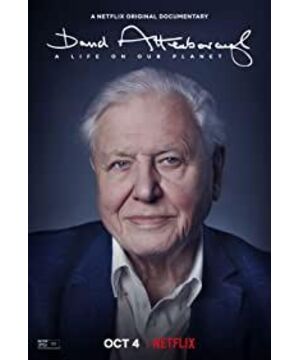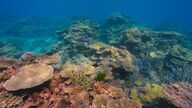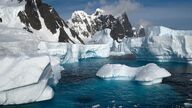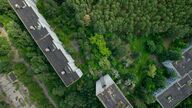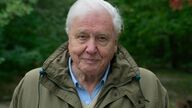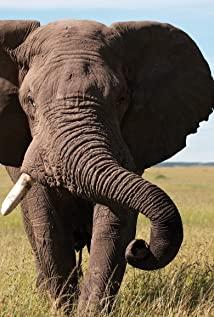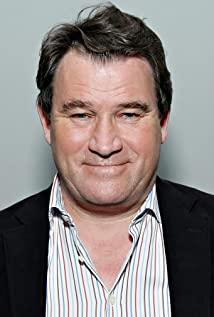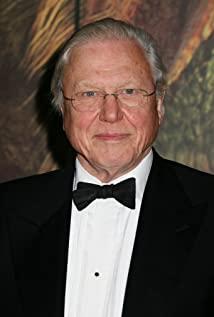David Attenborough is the father of the world's nature documentaries. He has produced more than 40 epic documentaries in 67 years.
Last year, at the age of 93, he played a video at the World Economic Forum:
Global warming has caused walruses and the sea ice on which all animals depend to continue to recede.
So 100,000 walruses crowded on a beach, densely packed.
In order to have more space for activities, the walrus was forced to climb an 80-meter-high cliff, but when it went down to the sea to search for food, because it weighed a ton and had very poor eyesight after being out of the water, it often stomped empty and rolled down and waited for death.
At the bottom of the cliff, there are already corpses everywhere.
In the past, BBC’s nature documentaries were called blue-chip documentaries, which can be said to be a major Hollywood production in the nature documentary world.
These documentaries hide human intervention and only present a natural immersive experience. "Pulsation of the Earth" even presents an animal perspective.
Some people doubt that the ecology is so deteriorating, but the film is peaceful. Isn't this a deception?
In the last episode of "Frozen Planet" in 2011, Attenborough appeared in the polar regions to explain the damage to animals caused by melting ice, breaking the principle of no host for blue chip documentaries since 2001.
Someone asked, why did you make a show 50 years ago and did not involve much of the relationship between man and nature? Attenborough's answer:
I didn't expect that 50 years ago, human beings would have such a huge impact on the environment and climate.
In this Netflix documentary "David Attenborough: Me and Our Planet", he reviewed the decisive moments in his life as a naturalist and the destructive changes he saw in nature.
As the person with the longest journey in history, Attenborough has explored all the ecological environments on earth. He had visited the North and South Pole in person--
Visit the volcano——
I also went to Africa to give heart resuscitation to rhinos——
When he was young, there were animals and plants that had never been seen before, full of vitality.
Today, the biggest discovery of Attenborough is that some animals are getting harder and harder to find.
The first time this idea came up was when he was filming "The Evolution of Life" in the 1970s when he encountered a rare and endangered animal-the mountain gorilla.
There are only three hundred mountain gorillas deep in the African jungle, and they were not disturbed, and naturally accepted him because they are used to the forest guards guarding them every day.
Some poachers brutally chopped off the heads, hands and feet of orangutans and sold them to collectors;
In order to catch a small orangutan, he even killed more than a dozen adult orangutans.
In 2007, the criminal gang killed 9 mountain gorillas, including a female who was in labor.
Attenborough is very sad:
Once a species becomes the target of mankind, the earth cannot accommodate them.
For example, being full of treasures has become the sin of whales.
After being hit by a harpoon and a javelin, the whale will struggle for 20 minutes before slowly dying, and then it will be knocked on the bone by the whalers.
The world's largest whale, the blue whale, is only a few thousand left, and it is difficult to find its trace.
In 1978, Attenborough recorded the sound of a humpback whale with a hydrophone: like singing and crying.
Attenborough has visited the Borneo rainforest five times. A small piece of rainforest may contain 700 tree species, equivalent to all of North America.
When I visited again now, I saw an 800-meter-wide dividing line with rainforest inside and artificially planted oil palm outside.
The rainforest was chopped down, the timber was sold for money, to make room to grow oil palm, and then to make a fortune to be squeezed out of the last drop of oil and water.
Without the rainforest, the orangutan hangs alone on the tree trunk, bewildered.
Once upon a time, the ocean was magnificent with fish vying for nutrients.
Beginning in the 1950s, fishing boats have taken 90% of the large fish endlessly.
In 1998, when filming "Blue Planet", the film crew discovered coral bleaching:
When the symbiotic bacteria leave, the coral becomes a pile of bones, which are eventually swallowed by seaweed and turned into ruins.
This is not a comfortable documentary that allows us to see how the beauty of nature is destroyed:
Over the past 50 years, the number of wild animals has fallen by an average of 60%;
Overfishing, driving 30% of fish species to extinction;
We cut 15 billion trees every year;
Pollution and over-extraction of water sources have led to the extinction of 80% of freshwater organisms;
The burning of fossil fuels has exacerbated global warming and reduced the sea ice in the Arctic summer by 40% in 40 years.
Overlooking our planet, glaciers and rainforests are shrinking, shrinking, and shrinking again at a speed visible to the naked eye...
We are heading towards extinction because changes in carbon content threaten climate stability, which is a common feature of the five major species extinction events in history:
In 1937, Edenburg was 11 years old, the world population was 2.3 billion, the carbon content of the atmosphere was 280ppm, and only 66% of the wilderness area remained.
In 1978, Edenburg was 52 years old, the world population was 4.3 billion, the carbon content of the atmosphere was 335ppm, and only 55% of the wilderness area remained.
In 2020, Edenburg is 94 years old, the world population is 7.8 billion, the carbon content of the atmosphere is 415ppm, and only 35% of the wilderness area remains.
In this way, Attenborough made terrifying speculations:
In 2030, the rainforest will be destroyed, the hydrology will be destroyed, there will be no ice in the Arctic summer, and a large number of species will be extinct.
In the 2040s, the Arctic permafrost melted and released a stronger greenhouse gas—methane, which dramatically accelerated global warming.
In the 2050s, the temperature of sea water increased and the acidity increased;
The coral reefs are all dead, and the ruins are like bones;
There are fewer fish, just like prisoners in a net.
2100s:
The global temperature rises by 4 ℃, and most of the land cannot be inhabited;
We were displaced and the world became a huge quagmire.
The sixth mass extinction is about to take place, and it is human beings who are extinct.
At the age of 94, he can enjoy his old age early, but he is worried:
Knowing that the problem exists, but to ignore it, I will feel guilty. ...Nature is in crisis and can no longer express opinions softly. We hope that the audience will now know what is happening.
In order to find a way out, he went to Morocco to investigate renewable energy——
Go to the Netherlands to investigate land use——
The greenhouse gases produced by the global livestock industry and the space occupied are huge.
Attenborough proposed that if the daily diet is improved and mainly fruits and vegetables are used, half of the land will be liberated.
On the moon landing in 1968, the world looked down on the earth for the first time:
The earth is like an egg, enveloped in darkness, lonely and fragile.
However, with our help, the earth can recover.
At the end of the film, Attenborough went to Pripyat, Ukraine. It was once an uninhabited "ghost city" due to the Chernobyl accident.
Unexpectedly, the trees climbed up the tall buildings, and the wild animals took over everything.
No matter how big a mistake we make, nature can always overcome everything, and only humans can't survive.
What we want to save is only ourselves.
View more about David Attenborough: A Life on Our Planet reviews


